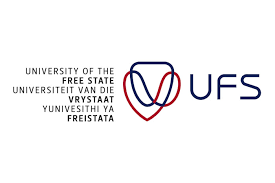UFS PhD Students Selected for Inaugural Swiss-African Winter School in Switzerland
The University of the Free State (UFS) proudly sent two PhD students to the inaugural ‘Swiss-African PhD Winter School on Innovation and Entrepreneurship for Sustainable Development,’ held by the Bern University of Applied Sciences Business School from 22 to 26 January 2024 in Switzerland. Representing UFS were Reabetswe Parkies, a Senior Officer in Marketing within the Faculty of Economics Management Sciences and Crespen Ndlovu, PhD Research Fellow in the Higher Education and Human Development Research Group (HEHD). They were among 30 PhD students selected across several African and European countries to attend the school on the institution’s campus.
‘’The winter school was indeed a beacon of holistic learning, where the promotion of sustainable development was seamlessly woven into the fabric of academic exploration. It provided a platform to engage with sustainable development’s complex challenges and explore innovative, actionable, and impactful research pathways,’’ said Parkies.
The purpose of the winter school
The primary goal of the winter school was to convene PhD students specialising in innovation and entrepreneurship to foster research insights conducive to sustainable development. It served as a forum for interdisciplinary dialogue, enabling participants to exchange ideas aimed at advancing this common objective. Ndlovu noted the significance of considering both global and local perspectives on sustainability challenges, emphasising the crucial role of ethical considerations, equity, and inclusivity in propelling sustainability initiatives forward.
Insights and experiences
In addition to collaborative discussions, the winter school facilitated activities such as the sharing and deliberation of individual research projects. A highlight for Ndlovu was the opportunity to engage with influential scholars like Prof Sophie Bacq from the International Institute for Management Development, who continues to inspire his work on social entrepreneurship and human development.
Parkies and Ndlovu both affirmed that the experience not only contributed to their personal growth but also provided valuable insights into their respective research projects. Ndlovu stressed the importance of ensuring research relevance across various scales to contribute effectively to broader sustainability goals while addressing localised needs. Parkies echoed this sentiment, underscoring the significance of impactful research in bridging the gap between theoretical knowledge and real-world applications.

